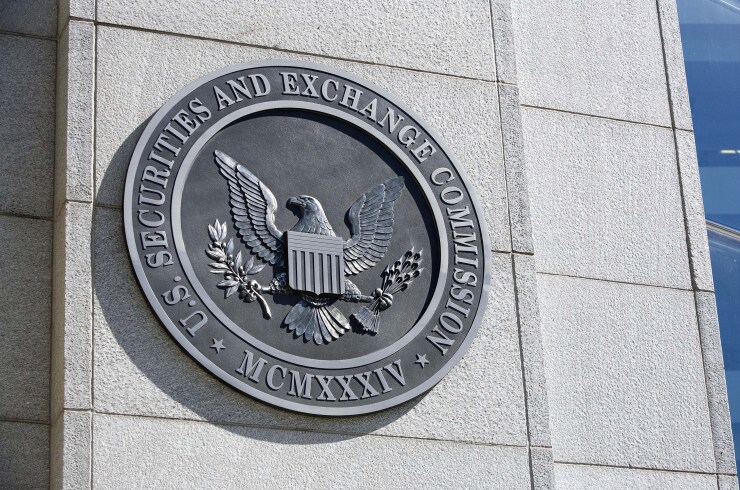
The long-awaited IPO
Initial public offerings for companies ranging from travel software startup Navan Inc. to Andersen Group Inc., the tax and advisory firm led by former partners of the firm that collapsed as a result of the Enron scandal, are left in limbo as the Securities and Exchange Commission remains largely shuttered. These companies are among the handful of listing candidates that could've begun formally marketing their deals to investors as soon as Monday.
Instead, with no deal to end the congressional impasse on the horizon, industry lawyers are advising their IPO clients to sit tight. Yet a shutdown that drags on for weeks or months would derail carefully choreographed listing timetables. Worse, a lengthy dispute could halt a stock market that's rallied to a string of records — and supported a rebound in deal volume.
"If this is a couple weeks at most, I don't think we'll see too much to worry about," said Dave Peinsipp, co-chair of Cooley's global capital markets practice. "If it takes a month or longer or goes into 2026, then we've got some real problems — but we're not there yet."
IPOs have been
Any extension of a shutdown would threaten to hold up companies that targeted going public before next month's Thanksgiving holiday, with the window before year-end holidays offering only a narrow time frame to push through deals.
The likes of Navan, Andersen Group and BitGo Holdings Inc. filed for IPOs earlier in September, making them the first to be impacted by the SEC not being able to
Companies that want to go public before the Nov. 27 holiday but that aren't yet publicly on file have until about Oct. 28, in order to fulfill a 15-day holding period and leave time for a week of marketing, lawyers say. For these firms, the shutdown starts to have a real impact if it stretches past the first full week of October.
"Clients who are going through IPOs are concerned about how long it might last and are trying to come up with game plans if it lasts longer than a few days," said John Ericson, a partner at Simpson Thacher & Bartlett. "It's tight just because there are limited windows from here to the end of the year to actually execute, just for market purposes."
Risk of pullback
The calendar issues aren't simply about logistics. For dealmakers, every day that they can't get listing paperwork approved increases the risk of a market pullback that could kill the sentiment that's been helping carry IPO volume closer to pre-pandemic norms.
The S&P 500 Index closed at another record and has returned more than 15% this year, and a closely watched gauge of small stocks is just shy of a September all-time high, as investors pile into anything related to artificial intelligence and cryptocurrencies.
Further delays would open up companies to the threat of investors having distractions like quarterly earnings — which will ramp up next week — as well as closely watched economic data and what could prove to be a pivotal Federal Reserve decision on Oct. 29.
People are excited about the types of companies going public right now, and deals have been "firing almost on all cylinders," said Lowenstein Sandler partner Daniel Forman. "An extended shutdown could cool a lot of the momentum that's in the IPO market right now."
U.S. IPOs have so far weathered more than their share of volatility. Dealmaking bounced back from the shock imposition of tariffs in April, and many of the listings delayed during that episode have since been completed. Still, after years of waiting for confidence to return, the industry is all too aware of how easily it can vanish.
"We're absolutely on a week-to-week basis and have been for 2025," said Cooley's Peinsipp. "The margin of error gets smaller when you take away a couple weeks that otherwise looked pretty good."





